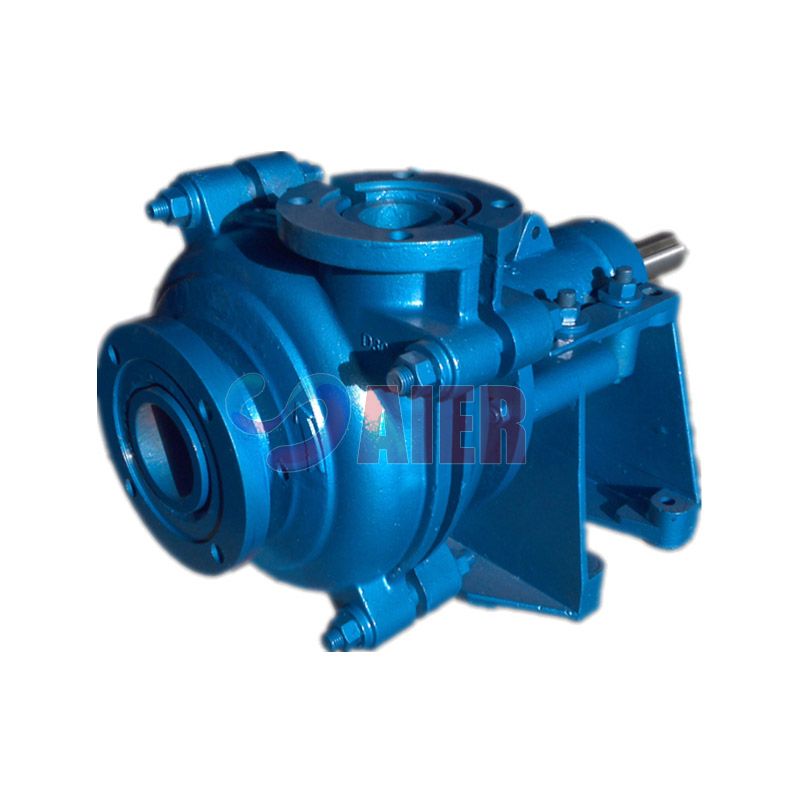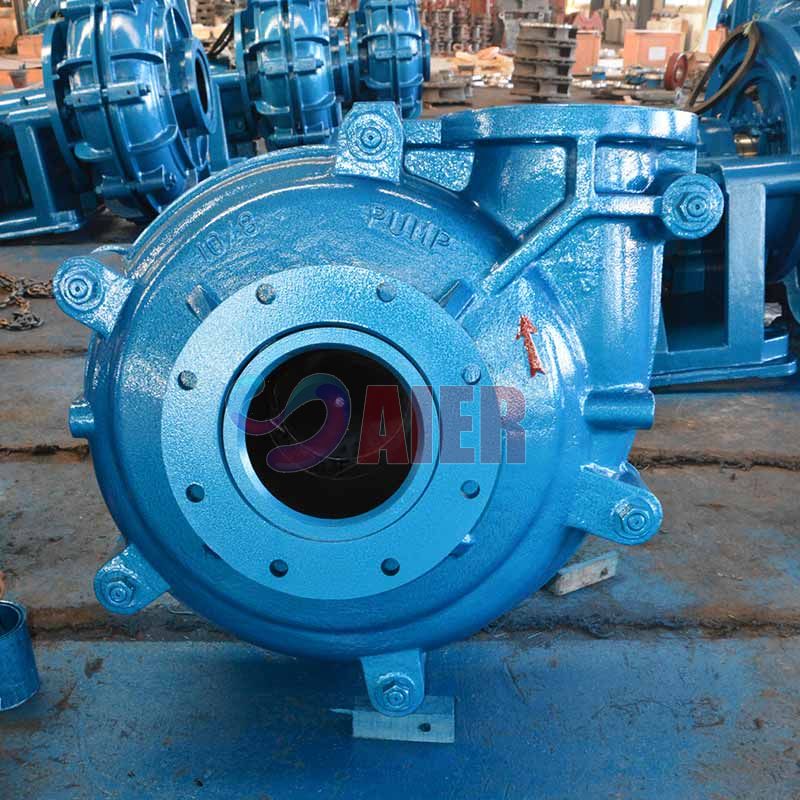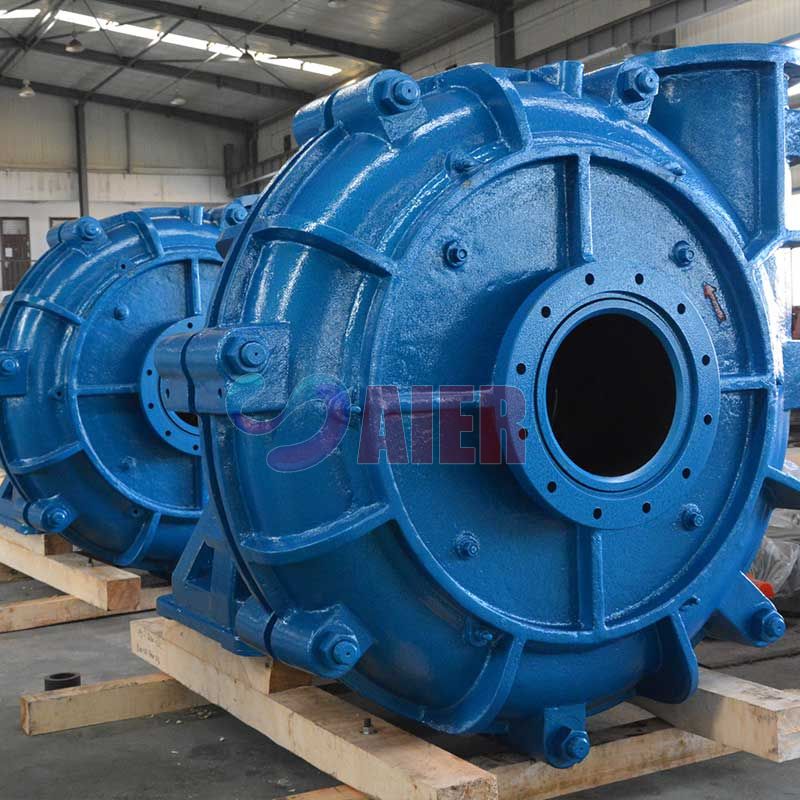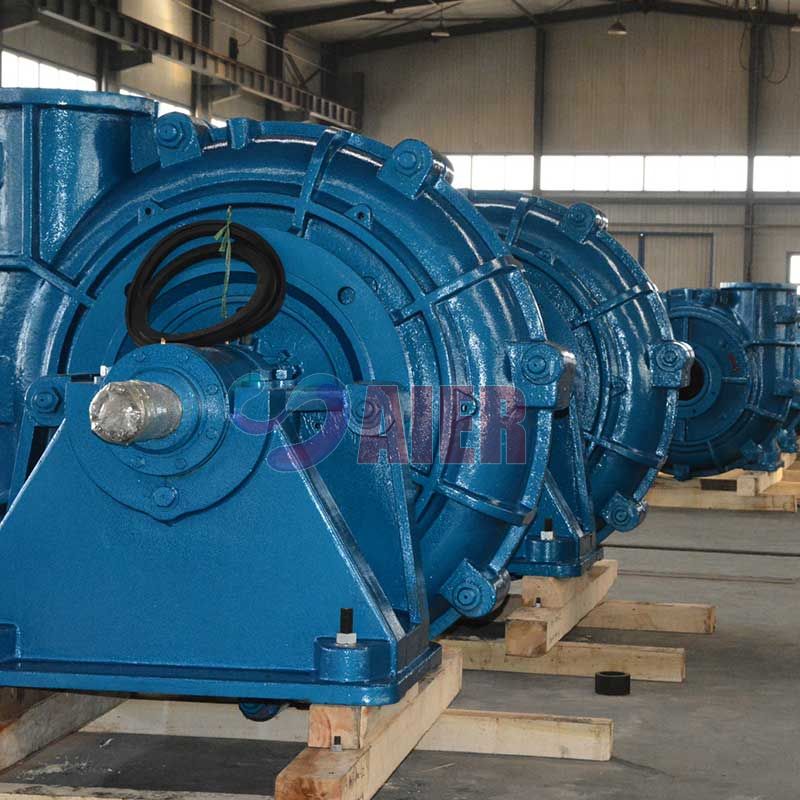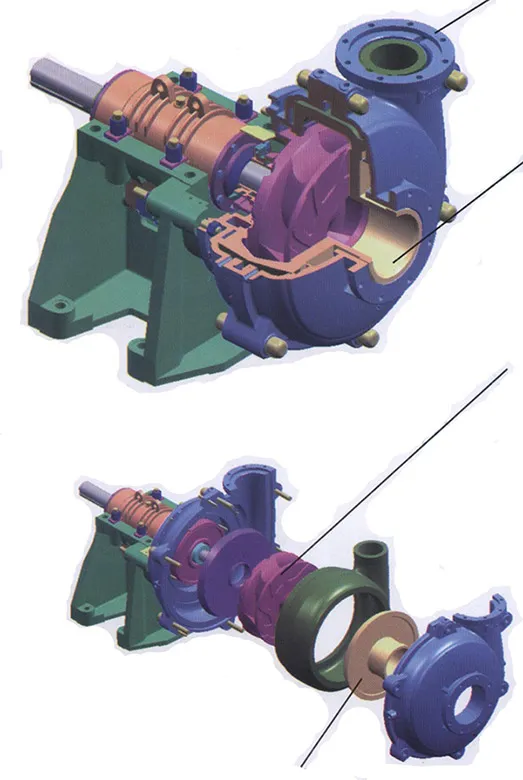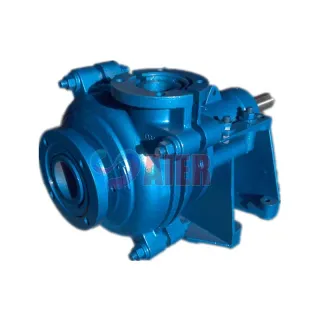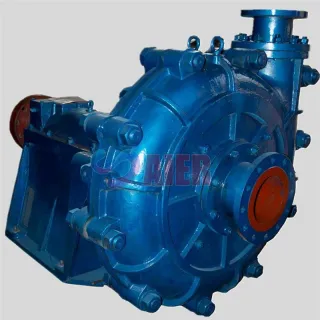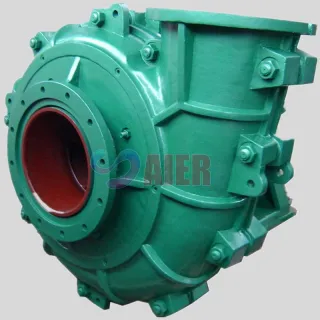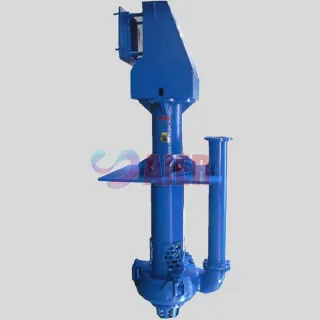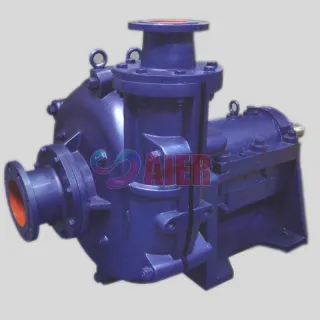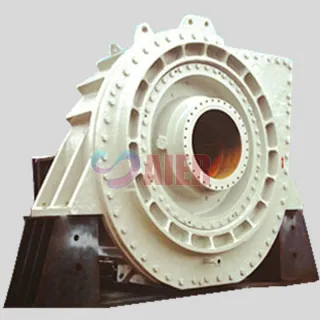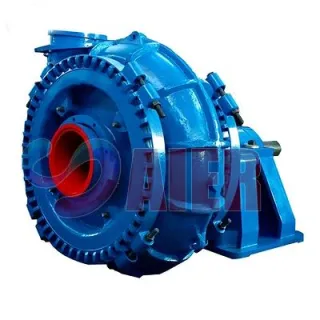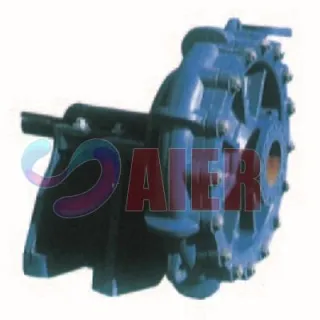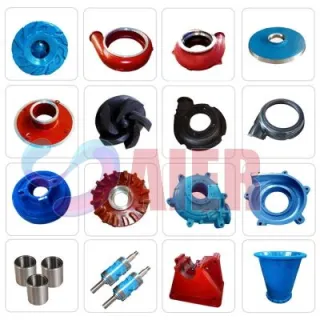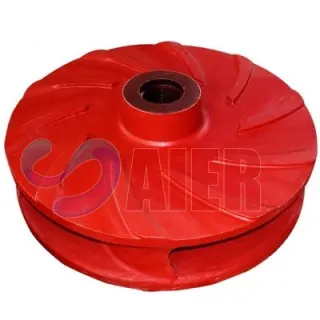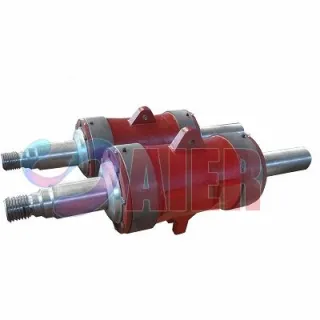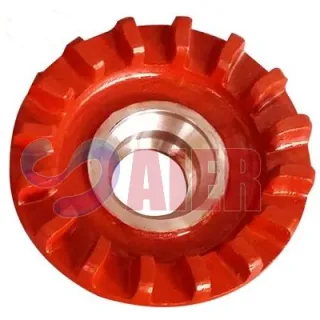WA Heavy-duty Slurry Pump
What is heavy duty slurry pump?
WA series heavy duty slurry pump is cantilevered, horizontal, natural rubber or hard metal lined centrifugal slurry pumps. They are designed for handling abrasive, high density slurries in the metallurgical, mining, coal, power, building material and other industry department.
Heavy duty pump specifications
Size: 1" to 22"
Capacity: 3.6-5400 m3/h
Head: 6-125 m
Handing solids: 0-130mm
Concentration: 0%-70%
Materials: Hyper chrome alloy, Rubber, Polyurethane, Ceramic, Stainless steel etc.
AIER® WA Heavy Duty Slurry Pump
Features of slurry pump
1. The frame plate for WA series pumps has interchangeable hard metal or pressure moulded elastomer liners. The impellers are made of hard metal or pressure moulded elastomer liners.
2. The shaft seals for WA series can be packing seal, centrifugal seal or mechanical seal.
3. The discharge branch can be positioned at intervals of 45 degrees by request and oriented to any eight positions to suit installations and applications. There are many drive modes for option, such as V-belt, flexible coupling, gearbox, hydraulic coupler variable frequency, silicon controlled speed, etc. Among them, the flexible shaft coupling drive and V-belt feature of low cost and easy installation.
4. In harsh conditions with sand, sludge, rocks and mud, ordinary slurry pumps tend to clog, wear and fail frequently.. But our heavy-duty slurry pumps are highly resistant to wear and corrosion, which means that the service life of our slurry pumps is better than other manufacturers' pumps.
Heavy duty pumps typical applications
Because our WA heavy duty slurry pumps are highly resistant to wear and corrosion, heavy duty pumps are used in a wide range of applications.
1. SAG mill discharge, ball mill discharge, Rod mil discharge.
2. Ni acid slurry, coarse sand, coarse tailings, phosphate matrix, minerals concentrate.
3. Heavy media, sugar beet, dredging, bottom/fly ash, lime grinding, oil sands, mineral sands, fine tailings, slag granulation, phosphoric acid, coal, flotation, process chemical, pulp and paper, FGD, cyclone feed, etc.
Pumps notation
| 200WA-ST: | 100WAJ-D: |
| 200: Outlet diameter: mm | 100: Outlet diameter: mm |
| WA: Pump type: chrome alloy lined | WAJ: Pump type: rubber lined |
| ST: Frame plate type | D: Frame plate type |
To learn how to solve your pumping problems, contact us today! We are the slurry pump manufacturer that can help you solve your problems.
Construction Design
|
|
Casing Split casing halves of cast or ductile iron contain the wear liners and provide high operation pressure capabilities.
Interchangeable hard metal and moulded elastomer liners |
|
Impeller The impeller may be either moulded elastomer or hard metal. Deep side sealing vanes relieve seal pressure and minimize recirculation. Cast-in impeller threads are better suited for slurries. |
Mating faces in hard metal liners are tapered to allow positive alignment during assembly and allow components to be easily removed for replacement.
Pump Part Material
| Part Name | Material | Specification | HRC | Application | OEM Code |
| Liners & Impeller | Metal | AB27: 23%-30% chrome white iron | ≥56 | Used for higher wear condition with pH between 5 and 12 | A05 |
| AB15: 14%-18% chrome white iron | ≥59 | Used for higher wear condition | A07 | ||
| AB29: 27%-29% chrome white iron | 43 | Used for lower pH condition especially for FGD. It also can be used for low-sour condition and desulfuration installation with pH no less than 4 | A49 | ||
| AB33: 33%-37% chrome white iron | It can transport oxygenated slurry with pH not be less than 1 such as phospor-plaster, nitric acid, vitriol, phosphate etc. | A33 | |||
| Rubber | R08 | ||||
| R26 | |||||
| R33 | |||||
| R55 | |||||
| Expeller & expeller ring | Metal | B27: 23%-30% chrome white iron | ≥56 | Used for higher wear condition with pH between 5 and 12 | A05 |
| Grey iron | G01 | ||||
| Stuffing Box | Metal | AB27: 23%-30% chrome white iron | ≥56 | Used for higher wear condition with pH between 5 and 12 | A05 |
| Grey iron | G01 | ||||
| Frame/Cover plate, bearing house & base | Metal | Grey iron | G01 | ||
| Ductile iron | D21 | ||||
| Shaft | Metal | Carbon steel | E05 | ||
| Shaft sleeve, lantern ring/resctrictor, neck ring, gland bolt | Stainless steel | 4Cr13 | C21 | ||
| 304 SS | C22 | ||||
| 316 SS | C23 | ||||
| Joint rings & seals | Rubber | Butyl | S21 | ||
| EPDM rubber | S01 | ||||
| Nitrile | S10 | ||||
| Hypalon | S31 | ||||
| Neoprene | S44/S42 | ||||
| Viton | S50 |
Transmission Module Design
|
Large diameter pump shaft, cylindrical Construction of heavy load, metric bearing using oil lubrication or grease lubrication; opened in serial, the construction features of small volume and high reliability. |
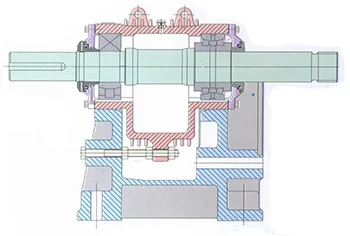 |
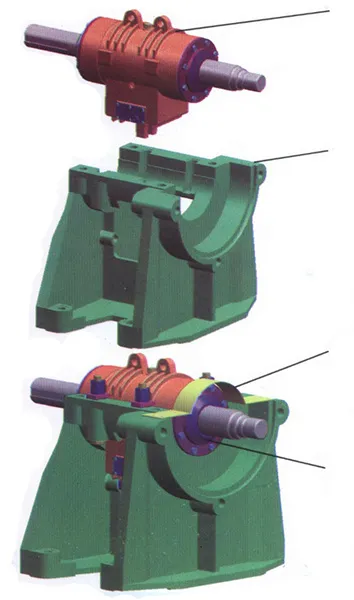 |
Shaft Bearing Assembly A large diameter shaft with a short overhang minimizes deflection and vibration. Heavy duty roller bearings are housed in a removable bearing cartridge. Pump Base Fasten the pump in the base with a minimum number of bolts and adjust impeller in a convenient position below the bearing housing. Water proof cover prevents leakage water from flying. Protection cover prevents leakage water from the bearing bracket.
|
Shaft Seal Module Design
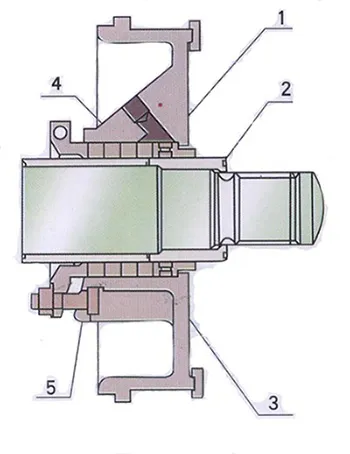 |
1. Packing Box 2. Front Lantern Ring 3. Packing 4. Packing Gland 5. Shaft Sleeve |
|
1. Release Gland 2. Expeller 3. Packing 4. Packing Gasket 5. Lantern Ring 6. Packing Gland 7. Oil Cup |
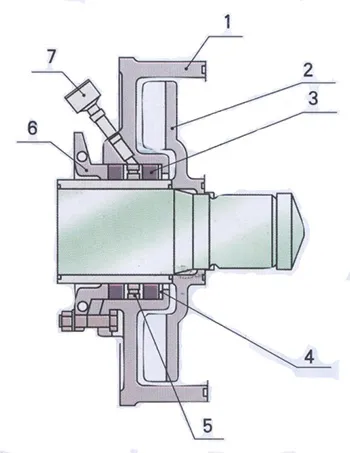 |
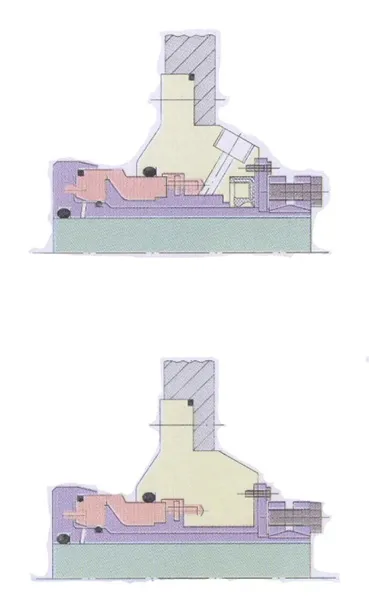 |
GRJ Mechanical Seal GRG type is used for liquid which is not allowed diluted. HRJ Mechanical Seal HRJ type is used for liquid allowed dilute. High hardness ceramic and ally are adopted for material of friction parts. It possesses high abrasive resistance & shake proof to guarantee that sealing effect can be satisfied by customer in various conditions.
|
Performance Curve
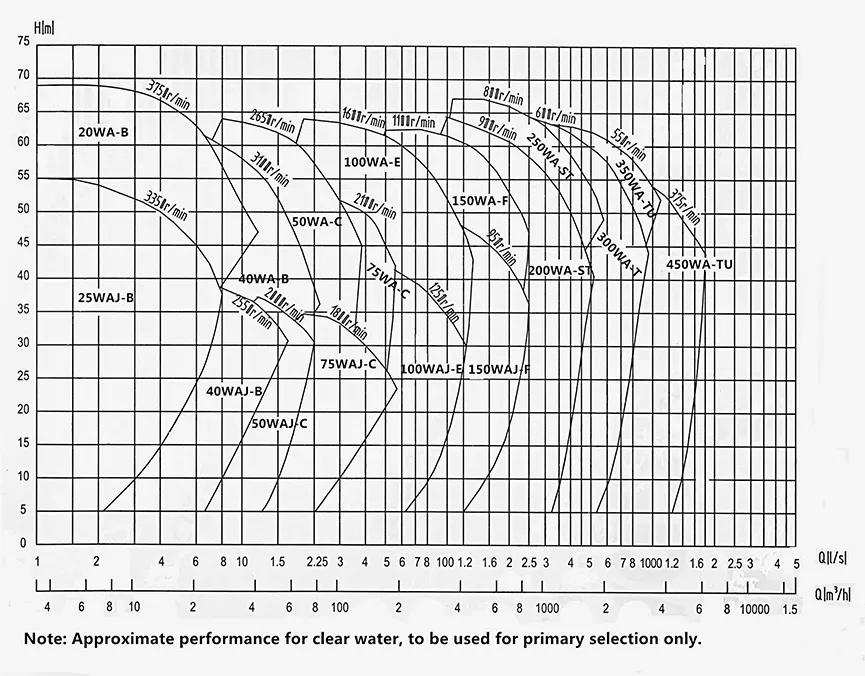
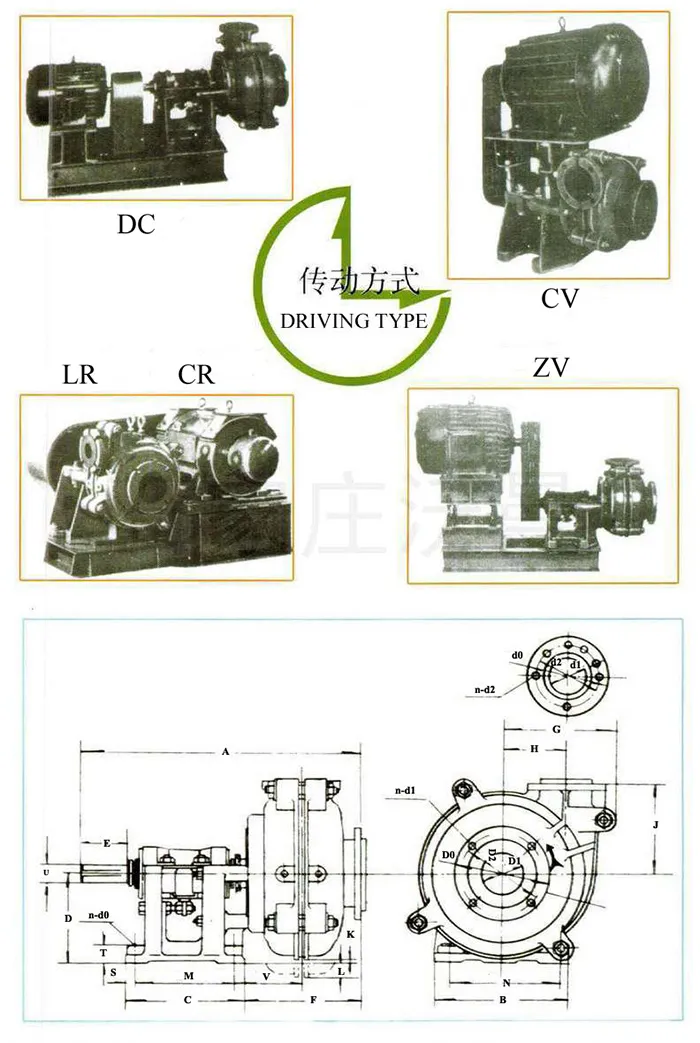
Installation Dimensions
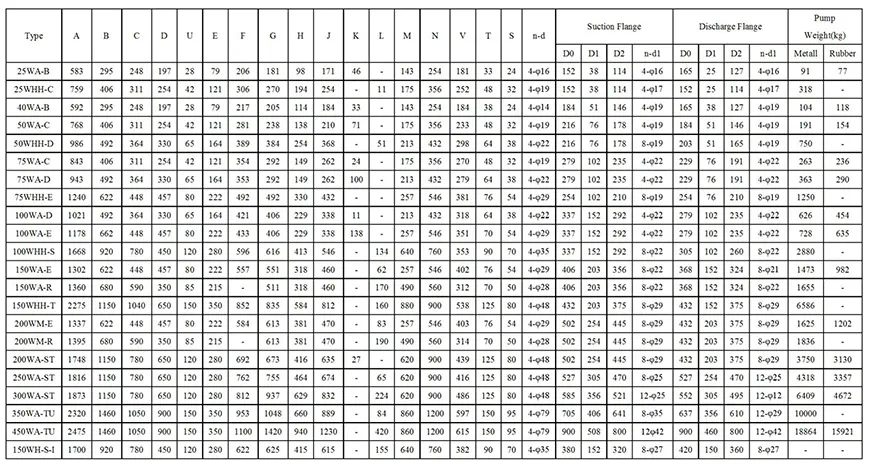
Slurry Pump Impeller Selection
Slurry pump impeller is one of the most important parts of centrifugal slurry pumps. Depending on the application, slurry pump impeller selection is crucial to slurry pump performance. Slurry applications can be especially hard on the impeller of slurry pumps because of their abrasive nature. In order slurry pumps operates efficiently and stand up to the test of time, impeller has to be selected properly for slurry pumps.
1. Slurry Pump Impeller Type
There are three different types of slurry pump impellers; open, closed, and semi-open. Each has its own strengths and weaknesses, depending on the application. Some are better for solids handling, others are better for high efficiency.
Any type of impeller can be used in slurry applications, but closed slurry pump impellers are more common because they are high efficient and abrasion Resistance,. Open slurry pump impellers are usually used well for high concentration solids as they are less likely to clog. For example, the small fibers in paper stock which, in high densities, may have a tendency to clog the impeller. Pumping slurry can be difficult.
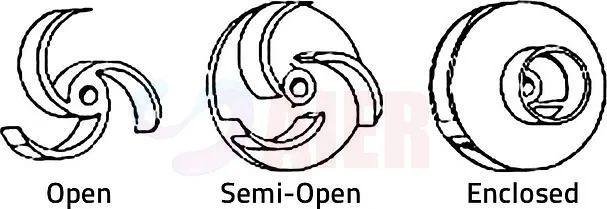
2. Slurry Pump Impeller Size
The size of slurry pump impeller must be considered to ensure it holds up against abrasive wear. Slurry pump impellers are generally larger in size when compared to slurry pumps for less abrasive liquids. The more “meat” the impeller has, the better it will hold up to the task of pumping harsh slurry mixtures. Just think of slurry pump impeller as a football team’s offensive line. These players are usually large and slow. Throughout the whole game they are beaten up, over and over again, but expected to withstand the abuse. You wouldn’t want small players in this position, just like you wouldn’t want a small impeller on your slurry pumps.
3. Slurry Pump Speed
Process speed doesn’t have anything to do with choosing slurry pump impeller, but it does have an effect on the life of slurry pump impeller. It is important to find the sweet spot that allows the slurry pump to run as slow as possible, but fast enough to keep solids from settling and clogging. If pumping too fast, the slurry can quickly erode the impeller due to its abrasive nature. This is why it is important to select a larger impeller if possible.
When dealing with slurry, you generally want to go bigger and slower. The thicker the impeller, the better it will hold up. The slower the pump, the less erosion will inflict on the impeller. However, the impeller isn’t the only thing to worry in slurry pump when dealing with slurry. Tough, durable materials of construction are necessary most of the time. Metal slurry pump liners and wear plates are common in slurry applications.
Installation of Slurry Pump
Horizontal Slurry Pump Installation
The mounting and installation of horizontal slurry pumps are generally subject to a number of considerations, including floor space, overhead space for lifting and the likelihood of flooding from spills. Pumps in critical services are often paired in duty/standby mode so that maintenance can be carried out on one pump while the other is running.
Large slurry pumps with high-energy motors - and perhaps with speed reduction gearboxes - would generally be mounted with the shaft axes in the same horizontal plane for ease of maintenance access.
A slurry pump with a belt drive may have the motor mounted beside it if there is sufficient floor space. However, if floor space is limited or there is a risk of flooding, the motor can be mounted above it either directly overhead (also known as “C drive”) or to its rear (reverse overhead mounting or “Z drive”).
Vertical Slurry Pump Installation
Vertical cantilever shaft sump pumps should be selected so that the suction inlet is close to the sump floor. If shaft length is limited by the required running speed and power to be transmitted, a suction pipe (generally two meters long) may be fitted to the suction branch to ensure the sump can be emptied.

